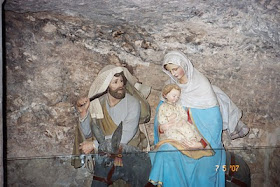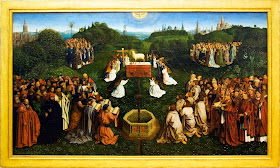There’s a new Star Wars movie out, and I saw it opening night a little over a week ago. I won’t give anything away, but it seemed familiar to the original three Star Wars movies. In all the Star Wars movies there are certainly some family problems going on. In the original three episodes (numbers 4-6), Luke is being raised by his uncle and aunt, who are murdered, and it’s later discovered that Darth Vader is Luke’s father, whom he hates as working for the Empire, but also wants to save, as the Emperor wants Luke to take over for his father. The next three episodes (number 1-3; it is a little confusing) is about young Darth Vader, or Anakin, as he was then known, who also has family issues, as he has no father (he was conceived by the Force), and ends up really messing his life up by taking vengeance on those who hurt his mother. He also falls in love with a princess, and even though, as a Jedi, he’s supposed to be celibate, marries her, and they conceive twins (Luke and Leia). While I won’t go into detail, even the new movies (numbers 7-9) continue the family drama storyline. But what is common to all the episodes is that the family drama has to do with power and abuses of it.
I bring that up because, as we heard our second reading, our minds probably went immediately to power. Maybe they didn’t go there at first, but as soon as we heard, “Wives, be subordinate to your husbands,” I’m sure we all probably bristled a little bit, for one reason or another. Maybe some felt like that shouldn’t even be a part of Scripture anymore, since, so some think, we’ve moved beyond the “backward” culture in which it was written. Maybe some of us were trying hard how to understand it, since it is a part of Scripture, which is the infallible Word of God. But all of us likely heard that passage in the same context of power on which all the Star Wars interfamilial drama is based.
If this feast of the Holy Family teaches us anything, it’s that the family is not about a power struggle. It’s not about who has the most power, or who is the boss. Instead, the Holy Family was all about obedience to God and protecting one another.
If the Holy Family was about power, then Jesus would have come out of the womb telling Mary and Joseph what to do. After all, Jesus is the co-eternal Son of God. Jesus is God, who created all things out of nothing. He even created, with the help of their parents, Mary and Joseph. No human could ever be God’s equal, and so, if family life was about power, Jesus would have been the one in charge. But Jesus came as an infant, with no power, totally reliant and dependent on the love of his mother, Mary, and his foster-father, Joseph.
After Jesus, Mary comes next in the power hierarchy, as a woman who never sinned. She was conceived without original sin, and always said yes to God. So with Jesus as an infant, not able to talk or care for Himself, if the choice was for Mary or Joseph to be in charge, to have all the power, it certainly would have fallen to Mary, based upon her holiness alone. But, the first time that Mary really issues a command in the Gospel is after Joseph is dead, at the wedding at Cana, when she tells the servants to do whatever Jesus tells them.
Poor Joseph. In the midst of the Holy Family, he’s the only one who could be at fault. His foster-Son is the Son of God, and his wife is sinless. If anything goes wrong in the household, everyone knows whose fault it is. Joseph is just, but he wasn’t perfect, and in the midst of such holiness, his sins must have stood out like a sore thumb. And yet, to whom do the dreams come, where God advises how to proceed? To Joseph! In today’s Gospel, the angel appears to Joseph twice, once to tell him to leave for Egypt, and then to tell Joseph it’s safe to return to Israel. This is backwards from how it should be, if power were the motivating factor in the family. But that should tell us something: power is not the motivating factor.
So as we read the passage from our second reading, we have to read it in the light of the model of holiness demonstrated by the Holy Family. Their concern was not power, but about obedience to the will of God, as it was known to them, and protecting each other. Sometimes the will of God will have wives obeying their husband; sometimes the will of God will have husbands obeying their wives (many wives will tell you that their greatest skill is letting the husband think that he is being obeyed, when it’s really her decision). But it’s not about any human will that is being expressed, but what is in the will of God. And as long as the family is seeking to be obedient to that will, then that family is well on the way to holiness.
If Star Wars teaches us anything, it’s that viewing the family through the lens of power and control is a recipe for disaster. And that message, whether intended or not, is based upon the Word of God, which reminds us that, for a family to be holy, it need not be concerned with who has power over whom, but how all the members of the family can be obedient to the will of God.
 | ||||
| Statues of the Holy Family fleeing to Egypt at the Milk Grotto |




















